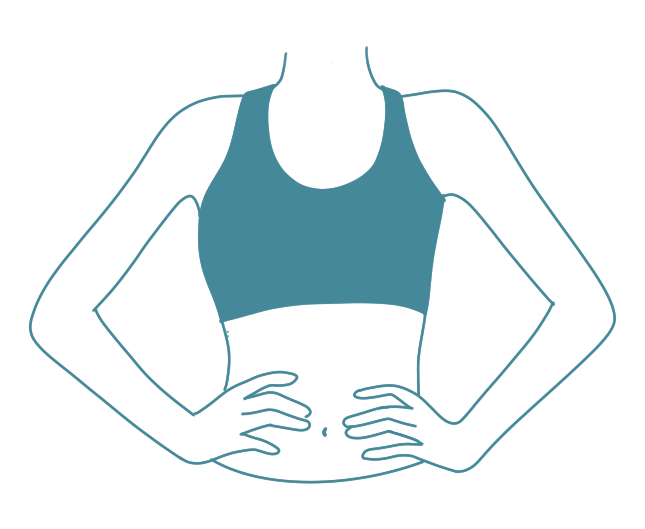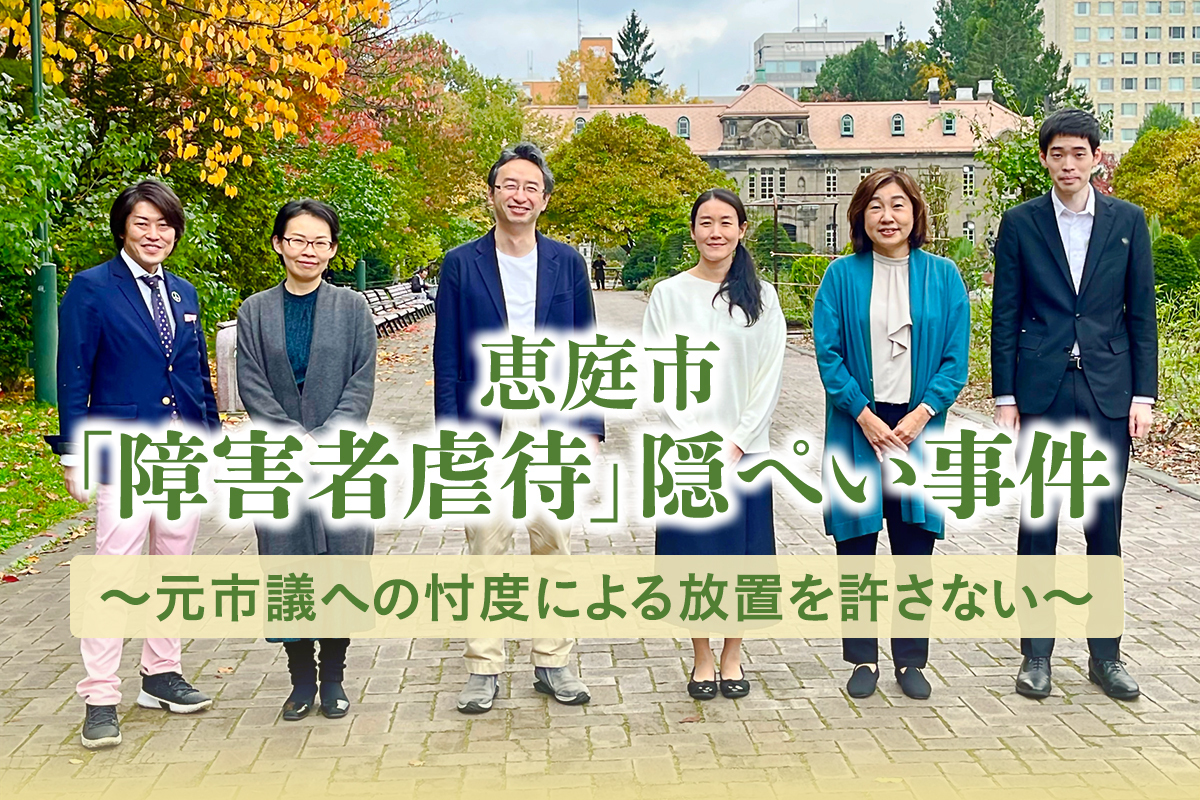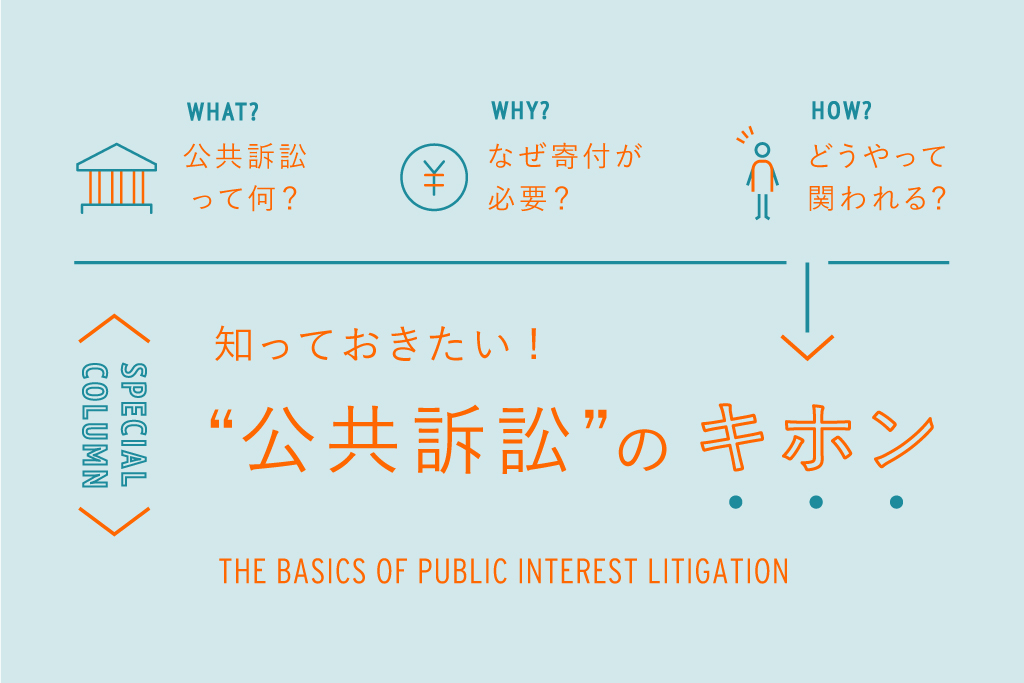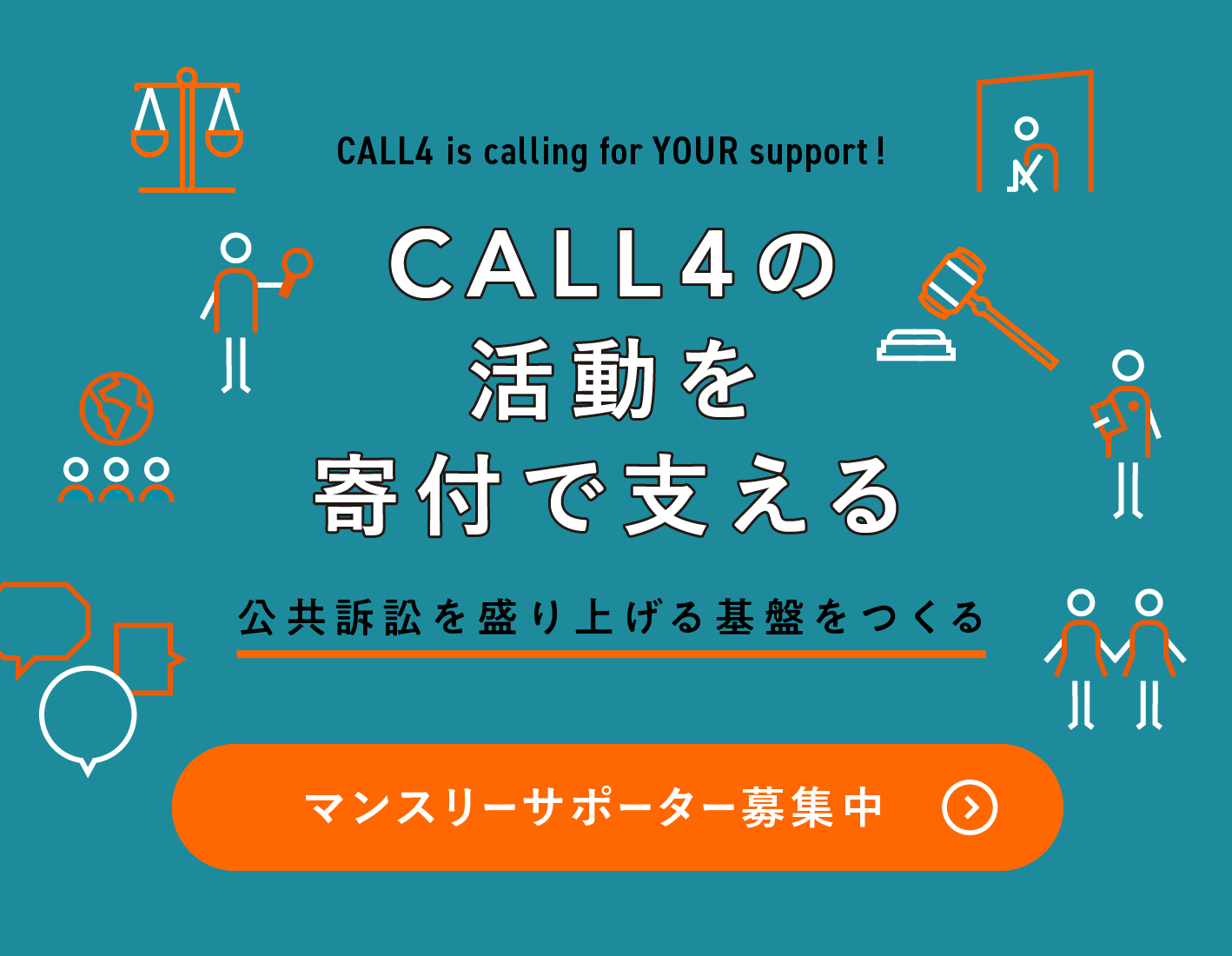「わたしの体は母体じゃない」訴訟 “Maternity is not my body’s purpose” Lawsuit
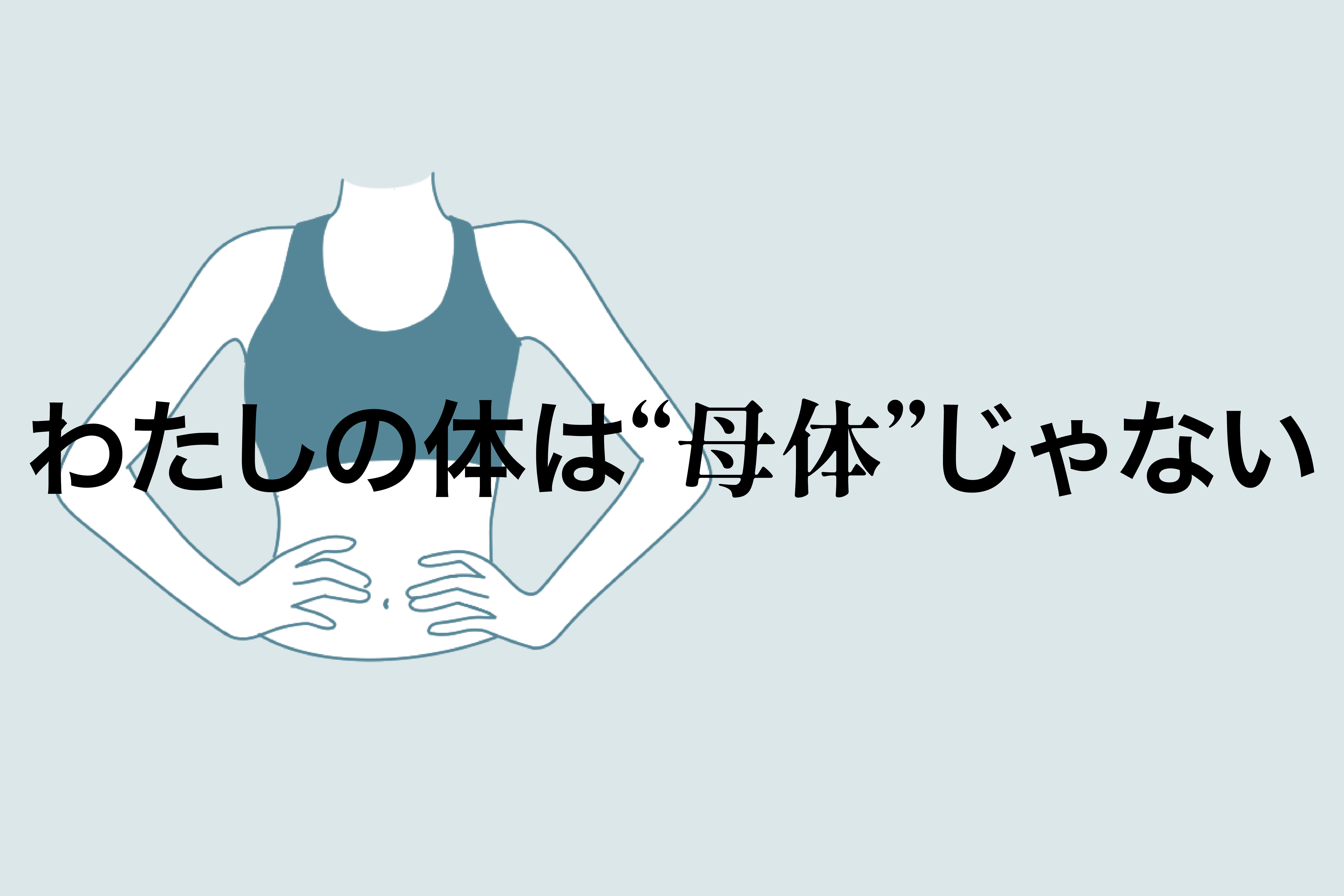
生殖能力に違和感を覚えたり、子どもをもたない生き方を確信をもって選択した原告らにとって、不妊手術は自分が自分らしく生きるために不可欠な手段です。しかし母体保護法は医療目的等以外の不妊手術を原則として禁止し、施術する場合にも子を既に出産していることや配偶者の同意を必要としています。これらの規定が、生殖に関する自己決定権を侵害し、憲法違反であることを訴え、現在のルールを変えたいと考えています。 For women who feel uncomfortable with their reproductive capacity or who have made a definite choice not to have children, sterilization represents an indispensable means to live life on their own terms. Despite this reality, the Maternal Health Act (aka the “Mother’s Body Protection Law”) prohibits sterilization for non-medical purposes and requires having several children, as well as spousal (or partner) authorization. We claim that these provisions infringe on the right to reproductive self-determination and violate the Constitution and seek revision of the current legislative framework.
はじめに
自分の体から生殖能力を取り除くことを望む女性がいます。
その願望は、幼いころから「いつか子を産む」ことを期待されることへの違和感や反発として、あるいは、思春期に始まった生理への嫌悪感や妊娠することへの恐怖心等として、また、女性にも男性にも恋愛感情や性的欲求を抱かないセクシュアリティの自覚等を発端として現れます。
女性は皆、子を産み育てることが当然、それを望むことが当然であるという価値観が支配する社会において、「自分の体から生殖能力を失わせたい」と願う女性の存在は、これまでほとんど知られることはありませんでした。
女性は子を産むのが当然だとの価値観は、「母体保護法」という法律の名に現れています。母体保護法は、女性の体は、すべて「母体」として「保護」するものとし、生殖能力を失わせる「不妊手術」を受けるには、配偶者の同意や「現に数人の子を有し」ていることなどが要件とされています。
「産む」か「産まない」かは、女性にとってもっとも個人的な事柄でありながら、その生殖能力は、人口の量と質を操作するための“装置”あるいは“資源”として、常に国に管理されてきました。母体保護法が定める不妊手術の規定も、国が出産を人口政策の手段としていた時代から引き継がれてきたものです。そこからは生殖に関する自己決定を尊重するという観点が、すっぽりと抜け落ちています。
私たちは、一人ひとりが生殖に関する自己決定権を自らの手に取り戻すため、不妊手術に関する現在のルールを変えるため、国を相手に提訴することにしました。
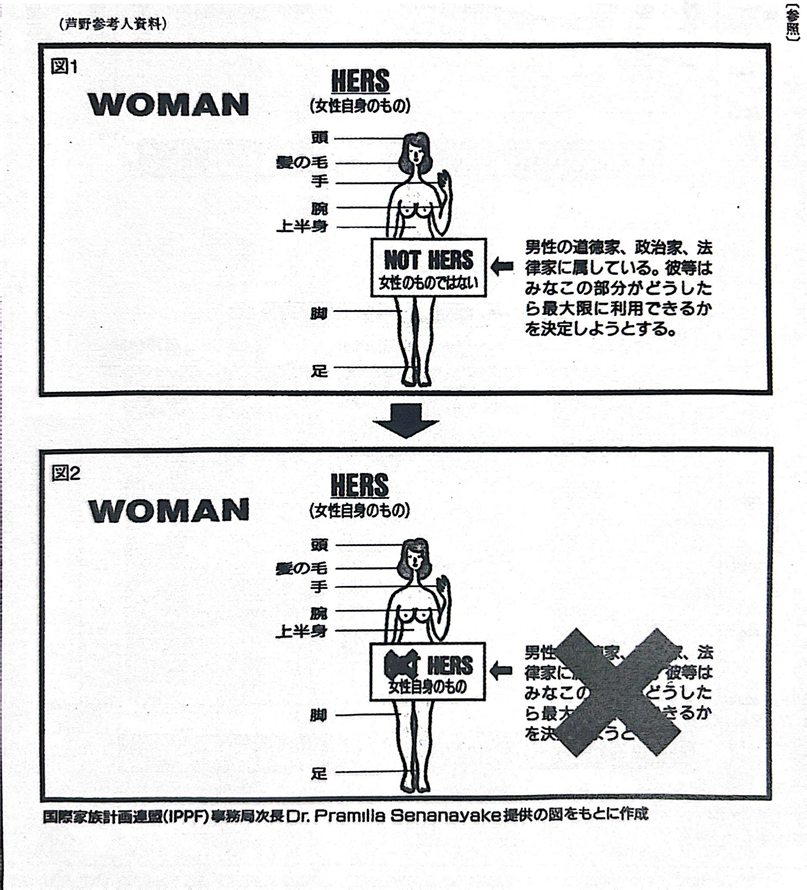
▲平成12年11月『参議院共生社会に関する調査会』参考資料
原告が立ち上がった経緯
原告 梶谷風音さん
私は女性として生きていますが、10代の頃から妊孕性のある自分の体に強い違和感や嫌悪感があり、10年以上不妊手術を受けることを望んでいました。
私は現在結婚していますが、妊娠・出産・子育ては経験したくない、そこだけは私の人生で絶対に譲れませんでした。パートナーは私の唯一かつ最大の味方として協力してくれました。
2023年9月、私は海外の病院で不妊手術を受けました。どのような体で生きていきたいかは私だけが決めることで、国に禁止される筋合いはないはずです。
「子どもを持たずに不妊手術を受けたい」と考える人なんて存在するはずがないという前提で作られた母体保護法のもとで、社会も私たちの存在を想定していません。
この訴訟を通じて、同じ思いを持つ人に、ありのままのあなたで生きてよいのだと伝えるとともに、多様な生き方が受け入れられ、女性が自分の体のことを自分で決められる社会に変わっていくための一助になればと願っています。

原告 佐藤玲奈さん
私は高校生のころから、男性にも女性にも恋愛感情や性的欲求を持ったことがありません。将来的に子供を産むことを考えたこともありません。
不妊手術を受けたいと思うようになったのは、高校を卒業したころだったと思います。毎月生理が来るたびに、「自分は妊娠するために準備をさせられている」というような違和感がありました。どうすればよいか調べたところ、不妊手術の存在を知りました。しかし法律で要件が定められていて、私は受けることができないこともわかりました。2022年に留学することになり、カナダでの不妊手術を検討しましたが、手術費用を捻出することができず断念しました。
不妊手術を受けるかどうかは私自身の体に関する問題で、国に法律で禁止されるようなことではないと思います。私の体は「母体」ではなく私の体なのですから、母体保護法という法律で「母体の保護」のために不妊手術を禁止される理由はないはずです。

原告 田中さん
私が不妊手術を強く望むようになったのは、母の言葉がきっかけです。母はことあるごとに「女性にとって一番大切なことは結婚して子どもを作ることだ」と言い、私が中学生のこには「あなたを産んだのは孫がほしかったからだ」と言いました。
母が放った言葉はずっと私の中から消えませんでした。私は次第に自分の体が女性として成熟していくことに強い嫌悪感を抱くようになり、拒食症になりました。生殖能力を持つこと自体に違和感を覚えるようにもなり、取り除きたいと考えるようになりました。しかし、その後大学に入り、日本では避妊目的の不妊手術は原則禁止と知りました。私は重要な自己決定権が犯されていると思いました。
原告になることは勇気のいることでしたが、私と同じような状況にある人をこれ以上増やしてはいけないと思い決意しました。この裁判での議論を通じ、生殖に関する女性の自己決定のあり方がより尊重される社会となることを願います。

原告 千文さん
私は小学生のころから子供を持ちたくないとうっすら思っていました。
大学時代の就職活動で、女性の生き方は子供を持つ前提とされるばかりなことに怒りを覚え、それ以降、特にコロナ禍で、女性が子供を持つことでいかに社会的・身体的な負担を抱えて生きているかということを思い知らされました。そこで絶対に母親になりたくないと思い、妊娠できなくなる方法を検索して不妊手術を発見しましたが、子供がいない独身女性は現状日本で手術を受けられないことを知りました。
日本のシステムが子供を絶対に産みたくない女性を排除しており、すべての女性が母親になる前提の母体保護法のもとに女性の自己決定権が侵害されている現状を変えたいと思い、原告となりました。自ら子供を産まないことを選ぶチャイルドフリーの生き方を尊重し、祝福・包括する社会になることを心より望んでいます。

原告 久野さん
私には幼いころから子を産むことへの違和感、拒否感があり、不妊手術を受けることを希望しています。子供のころから、私にとっては一人きりでいることが何よりも大切なことでした。
トイレで産んだ赤ちゃんを殺してしまって逮捕されるニュースなどを目にするたび、他人事とは思えず、妊娠への恐怖は高まっていきました。そこで3年前頃、私はミレーナ(子宮内避妊システム)の利用を決意し、装着を始めました。しかし、ミレーナの効果は最長5年で交換の必要があります。途中で外れてしまう人もいるそうです。不妊手術を受けることができれば、どれほど気持ちが軽くなるだろうと思います。
私は、誰にも干渉されず、誰にも説得されることなく、自分の体のことを決めたいだけです。妊娠出産は人生を大きく左右する選択です。一人の人間の意思を尊重して、不妊手術にしても中絶手術にしても、第三者の介入なく自分の意思だけで決められるようになってほしいです。
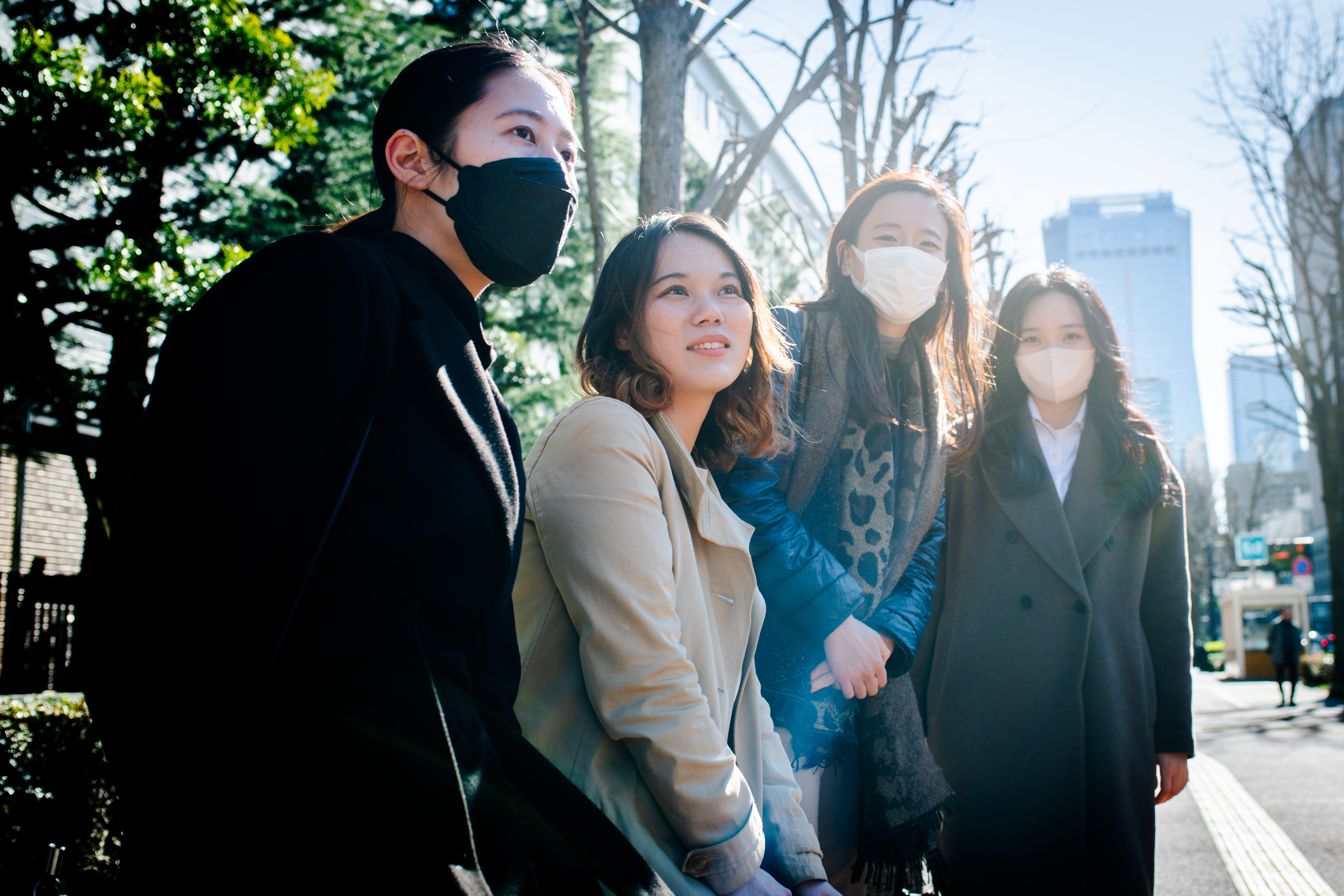
母体保護法による規制内容
不妊手術は永久的に生殖を不能にする手術です。不妊手術は、他の避妊法に比べて、避妊の効果、コスト、安全性等のあらゆる観点からもっともメリットが大きいとされています。
また、不妊手術を受ける目的が「生殖能力を取り除くこと」である場合、不妊手術以外の方法では達成することができません。自らの身体に生殖能力が備わっていること自体への違和感や嫌悪感があり、取り除きたいと願う人にとっては、不妊手術は、自分らしく生きる人生に集中するための唯一の手段です。
しかし、日本では治療等の目的以外で不妊手術を行うことは母体保護法で原則禁止とされており、不妊手術等を受けるためには、以下の2つのうちいずれかに当てはまる必要があります。
- 1つめは、妊娠や出産が、生命に危険を及ぼすおそれがある場合です。その場合でも、本人だけでなく、配偶者(事実婚を含む)の同意を得なければなりません。
- 2つめは、①すでに子どもが数人いて、②出産するたびに健康が低下するおそれのある場合です。この場合も、本人と配偶者が同意している必要があります。
どちらにも当てはまらないのに不妊手術をすると、1年以下の懲役又は50万円以下の罰金を課せられます。このように母体保護法は、不妊手術を受けることを、刑罰をもって厳しく制限しています。
母体保護法の立法・改正の経緯
母体保護法は、国民優生法と優生保護法にそのルーツがあります。
1. 国民優生法下における人口増加政策と不妊手術
国民優生法は、悪性の遺伝子の増加を防止するという優生思想の実現を図りつつ、避妊手術や中絶を規制し戦時下での人口増加を支える目的の下、昭和15年に制定されました。そこでは遺伝的精神病が伺われるなど優生的理由以外の優生手術(のちの不妊手術)は原則禁止とされ、刑罰をもって厳しく制限されました。女性の意思は常に配偶者又は父母の支配下にあるとされていた時代の要請から、配偶者同意要件も定められました。
2. 優生保護法下における人口抑制政策と不妊手術
戦後は一転して、人口抑制が国家的課題となりました。また、国民優生法が出生増加に傾倒し妊娠や出産に関する女性の人権を顧みなかったことへの反発もありました。これらを受けて、昭和23年に成立した優生保護法は、優生手術についての国民優生法のルールを引き継ぐとともに「母性の生命健康」の保護を新たな目的として加えました。これによって母体の生命健康維持のための優生手術(不妊手術)のルールが定められました(この時に出来た不妊手術に関するルールが、母体保護法に引き継がれることになります)。
しかし、優生保護法の下でも、優生的理由以外の不妊手術一般を罰則を持って禁止するという態度は変わりませんでした。不妊手術は人口の”質”を落とさず人口の”量”を規制する手段と考えられており、これは国家が出産を管理するという国民優生法時代からの思想に支えられたものでした。
3. 母体保護法下でも維持された不妊手術禁止の原則
昭和50年代に入ると、優生保護法の「優生」という用語や強制手術を認める規定等への非難が強まりはじめ、平成6年にエジプトのカイロで開催された国連国際人口開発会議において、国際社会からも強い非難を浴びました。これを受けて平成8年には優生保護法から母体保護法に法改正がされました。
立法の過程では、不妊手術を自由化する案も出されましたが、利害関係者間でも共通の問題として認識されていた、遺伝性疾患やらい疾患を手術要件とする優生思想的規定の見直しのみがなされました。リプロダクティブ・ヘルス/ライツ(性と生殖に関する健康・権利)の観点から、女性の自己決定権にそぐわない条文の改廃等も検討されましたが、意見の分かれた不妊手術に関するルールは据え置かれることとなりました。結果として、国家が出産を管理し人口政策の手段としていた国民優生法・優生保護法時代から続く、不妊手術を原則禁止とする態度は、何も変わらないまま現在に至っています。
不妊手術に関する母体保護法上のルールは性と生殖に関する自己決定の尊重が求められる今日の社会にそぐわないものであり、アップデートされる必要があると考えます。
本訴訟の争点
私たちは、母体保護法3条1項、28条及び34条(以下「本件各規定」)が違憲違法であると考え、国に対して以下3点を請求します。
- 不妊手術を受けることのできる地位があることの確認請求
- 不妊手術を受けられるようにしないことは違法であることの確認請求
- 立法不作為による国家賠償請求
本件各規定が違憲・違法と考える根拠は以下のとおりです。
憲法13条後段違反
憲法13条は個人の尊重について定めています。個人の尊重とは、一人ひとりの人間が人格的自律を持つ存在として「かけがえのない生の形成を目指す、いわば自己の”生の作者”」であることを最大限尊重しなければならないとする憲法の基本理念です。
自分自身の身体に生殖能力があることに強烈な違和感を覚えたり、子どもをもたない生き方を確信を持って選択した者にとって、不妊手術は、自分らしい身体で自分自身の人生を送るために不可欠な手段です。不妊手術を受けられるか否かはそれを望む者にとって人格的自律の根源に直結しており、これに関する自己決定権(不妊手術を受ける権利)は個人の尊重理念に由来する憲法13条後段によって守られています。
本件各規定は、不妊手術を罰則により原則禁止とすることで、不妊手術を受ける権利を剥奪しています。本件各規定は、国家が出産を管理し人口政策の手段としていた時代の思想に支えられたものであり、今日では全く合理性等がありません。本件各規定は憲法13条後段に違反します。
憲法24条2項違反
憲法24条2項は「配偶者の選択、財産権、相続、住居の選定、離婚並びに婚姻及び家族に関するその他の事項に関しては、法律は、個人の尊厳と両性の本質的平等に立脚して、制定されなければならない」と定め、国家には、家庭生活における個人の尊重(憲法13条)と両性の平等(憲法14条)を、法律を通じて具体化する責務があるとしています。
その趣旨は、明治憲法下の家制度を前提とした家族観を否定するとともに、国家が一定の家族観を前提に法制度を構築し、家族形成を強制することから決別することにあります。
本件各規定は、不妊手術を行う条件として、配偶者からの許可を得、既に子を出産していること等を求めています。このルールは、女性を子を産むための存在としていた「家制度」を踏襲するかのように、女性は子を産むものであることを当然の前提としており、生殖に関する女性の自己決定よりも、子を産み育てることを優先するものです。
本件各規定は、戦前の家父長制度を前提とした家族のあり方を、刑罰をもって強制するものです。本件各規定は、家制度の否定・家制度との決別を軸とした憲法24条の趣旨を否定するものであり、憲法24条2項に違反します。
寄付のお願い
今回の裁判をとおして、不妊手術に関するルールの問題点について日本の社会全体で議論し、変化をもたらすことを期待します。一人ひとりが性と健康について自分の意思で決めることができる社会を実現するために、どうかご支援のほどよろしくお願いいたします。
資金の使途
訴訟費用:印紙代・コピー代などの実費費用
学者に依頼する意見書費用:専門分野ですので、憲法学者や行政法学者等の専門家に意見書を執筆していただくことを予定しています
海外の知見の証拠化:海外の専門家などからヒアリングをしたり、意見書を提出していただくことを検討しています。これには通常の謝礼の他翻訳費用も必要となります
弁護団、原告などの交通費:原告や弁護団の一部が裁判に出頭する際の交通費、専門家の方などに東京にお越しいただく際の交通費を寄付金から支出する予定です
イベント開催・広報費用:この裁判に関するイベントや広報費用にも寄付金を用いたいと考えています
弁護士費用等:弁護団員の着手金、成功報酬、出張日当等に活用したいと考えています
弁護団について
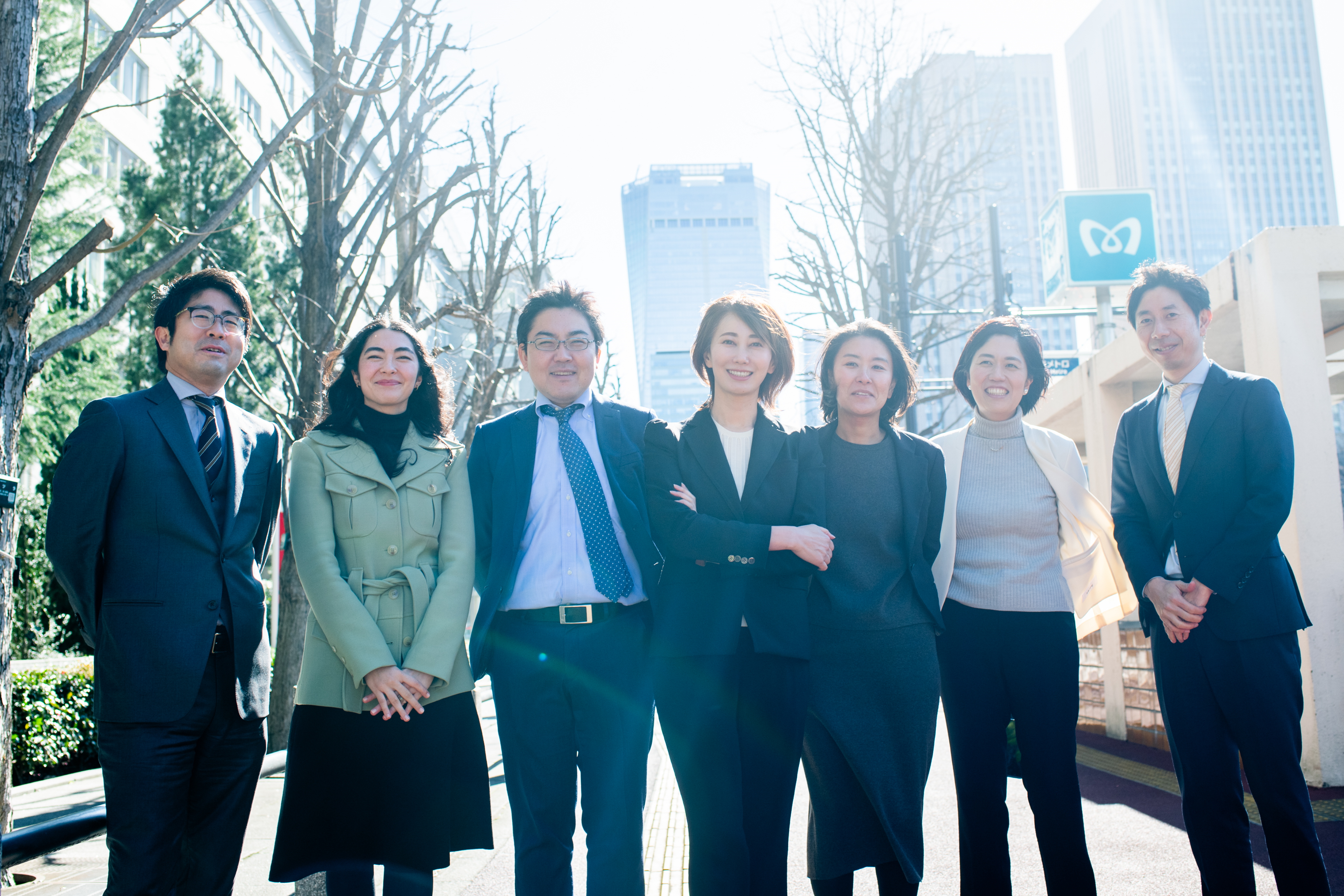
亀石倫子(法律事務所エクラうめだ)
井桁大介(宮村・井桁法律事務所)
岡 香織(鴻和法律事務所)
谷口太規(弁護士法人東京パブリック法律事務所)
戸田善恭(法律事務所LEDGE)
早坂由起子(千川通り法律事務所)
担当弁護士のメッセージ
産むことを奨励される少子化社会で、「子どもをもたない生き方を選ぶ」ことを表明するのは難しく、ましてや、確実で安全な避妊法として不妊手術を受けたい人や、自分の体に備わっている生殖機能に違和感があり不妊手術で取り除きたいと願う人の存在は、ほとんど知られていないかもしれません。原告の女性たちとともに、この裁判を通じて、生殖に関する自己決定権を女性自身の手に取り戻し、それぞれが望む満ち足りた人生を、自分らしい体で生きられる未来をめざしたいと思います。
弁護団長 亀石倫子
LEDGEについて

LEDGEは、特定の公共訴訟を支えるために作られた、各種専門家によるチームです。本訴訟はLEDGEの支援を受けています。(本訴訟の弁護団の一部はLEDGEのメンバーです)
下記の公式SNSにて、「わたしの体は母体じゃない」訴訟の最新情報の告知等も行なっていますので、よろしければぜひフォローください。
Introduction
There are women who wish to remove the reproductive capacity from their bodies.
This desire may derive from several factors such as childhood discomfort or rebellion against the expectation of "having children someday", a disgust for menstruation that begins in adolescence or a fear of pregnancy, or a realization of a lack of romantic feeling or sexual attraction towards neither men nor women.
In a society dominated by the belief that it is natural for women to bear and raise children, the existence of women who wish to "remove reproductive capacity from their bodies" has always been overlooked.
The so-called “Mother’s Body Protection Law” presumes that all women shall bear children. It treats women's bodies as "maternal bodies" to be "protected," and a sterilization surgery requires spousal consent or "already having more than one child."
Whether to "give birth" or "not to give birth" is the most personal matter for women, but their reproductive capacity has always been controlled by the state as a "device" or "resource" to manipulate the quantity and quality of the population. The regulations over sterilization surgery stipulated by the Maternal Health Act are also remnants from an era when the state used childbirth as a means of population policy. As such, the right to reproductive self-determination is completely neglected.
We decided to sue the state to change the current rules regarding sterilization surgery so that any individual can regain their right to reproductive autonomy.

▲Reference materials for the “Council on Inclusive Society” in the House of Councillors, November 2000.
Stories of plaintiffs
Plaintiff Kazane Kajiya
I live as a woman, but since my teenage years, I have had a strong sense of discomfort and disgust with my body's fertility, and I have wished to undergo sterilization surgery for over ten years. I am currently married. However, my wish to not experience pregnancy, childbirth, or child-rearing is something that I will never compromise in my life. My partner has been my only and greatest ally in this.
In September 2023, I underwent sterilization surgery at a hospital abroad. How to live a life with my body is something only I can decide for myself, and there is no reason for the state to impose prohibitions. The Maternal Health Act is made based on the assumption that there should hardly be anyone who “wants to undergo sterilization surgery without having children.” A society with such a law fails to take into consideration existence like us.
Through this lawsuit, I hope to tell those who hold the same beliefs like me that it is okay to just live as who you are. Also I wish our society can change into one where a diverse way of living can be accepted, and women can make decisions regarding their own bodies.

Plaintiff Reina Sato
Ever since high school, I did not have romantic feelings or sexual desires for either men or women. I have never considered having children.
I started considering sterilization surgery around the time I graduated from high school. Whenever I have my period, I feel a sense of discomfort, as if I was being prepared to get pregnant. When I looked into what I could do, I learned about the sterilization surgery. However, I also found out that I was not able to receive the surgery due to the legal requirements. In 2022, I planned to study abroad and considered getting sterilization surgery in Canada, but I had to give up because I couldn't afford the surgery costs.
Whether or not to undergo sterilization surgery is a matter concerning my own body, and I don't think it should be prohibited by state law. Because my body is not a "maternal body", it is not unreasonable that the so-called “Mother’s Body Protection Law” prohibits sterilization surgery for the "protection of the maternal body."

Plaintiff Tanaka
What strongly motivated me to desire sterilization surgery was my mother's words. Every now and then, she would say, "The most important thing for a woman is to get married and have children," and when I was in middle school, she told me, "I gave birth to you because I wanted grandchildren.”
My mother's words have stayed inside of me. Gradually, I developed a strong aversion to my body maturing as a female, which led to anorexia. I also began to feel discomfort with having reproductive capacity and wanted to remove it. However, after entering university, I learned that sterilization surgery for contraceptive purposes is prohibited in Japan. I felt that the crucial right to personal autonomy was violated.
Courage is necessary in determining to be a plaintiff, but I decided to do so because I know that the number of people in the same situation as me should not increase anymore. Through the discussions during trials of this lawsuit, I hope that our society will become more respectful of women's reproductive autonomy.

Plaintiff Chifumi
Since elementary school, I had a vague thought that I didn't want to have children.
During my job hunting in college, I was irrigated by the widespread assumption that having children is the foundation of a woman’s life. During the COVID-19 pandemic, I became acutely aware of the social and physical burdens women bear by having children. Then, I determined that I will never become a mother. I searched for ways to become infertile, and discovered sterilization surgery. However, I learned that unmarried women without children are currently unable to undergo the surgery in Japan.
I became a plaintiff because I want to change the current situation where women who absolutely do not want to have children are excluded from the social system of Japan, and women’s right to self-determination is violated by the Maternal Health Act, which presumes that all women shall become mothers. I sincerely hope for a society that respects, celebrates and embraces the child-free lifestyle chosen by those who decide not to have children.
Plaintiff Kuno
Since I was a child, I have felt a sense of discomfort and rejection against having children, and wished to undergo sterilization surgery. Being alone has always been the most important thing to me since I was a child.
Every time I see news about someone being arrested for killing a baby born in a toilet, I can't help but feel that it could happen to me, and my fear of pregnancy was intensified. About three years ago, I decided and started to use Mirena (an intrauterine contraceptive system). However, Mirena lasts for a maximum of five years and has to be replaced. There also seem to be people who have it come out halfway. I think I will feel much more relieved if I can have the sterilization surgery.
I just want to decide about my body without being interfered with or persuaded by anyone. Pregnancy and childbirth are choices that greatly affect one's life. I hope that when making decisions for sterilization surgery or abortion, a person’s will be respected and a person can make a decision based on only their own will without the interference of third parties.
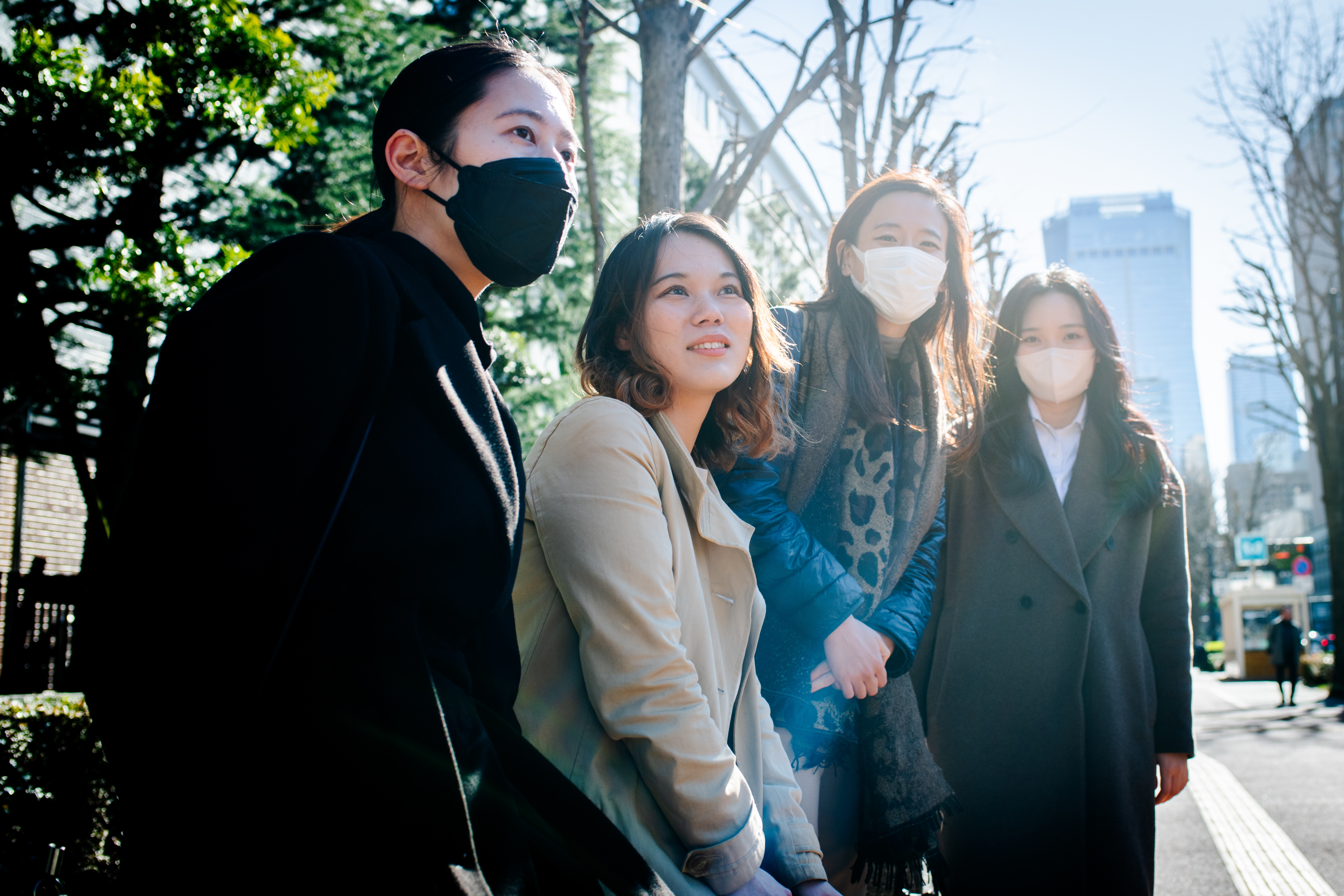
Regulations in the Maternal Health Act
Sterilization surgery is an operation that permanently disables reproductive capacity. From the perspective of contraceptive effectiveness, cost, and safety, sterilization surgery is considered to have significantly more merits than other contraceptive methods.
Furthermore, when the purpose of undergoing sterilization surgery is to "remove reproductive capacity," it cannot be achieved by any other means. For those who feel discomfort or aversion to having reproductive capacity in their bodies and wish to remove it, sterilization surgery is the only means to realize a life authentic to oneself.
However, in Japan, performing sterilization surgery for purposes other than medical treatment is prohibited in principle under the Maternal Health Act. To undergo sterilization surgery, one must meet at least one of the following two conditions:
The first condition is when pregnancy or childbirth poses a risk to life. Even in such a case, the consent from, not only the individual, but also the spouse (including common-law marriage) is required.
The second condition is when: ① one already has more than one children and ② giving birth runs the risk of impairing the health of the individual. Again, consent from both the individual and their spouse is necessary.
If one undergoes sterilization surgery without meeting either of these conditions, one can be subject to imprisonment for up to one year or a fine of up to 500,000 yen. Thus, by imposing a criminal penalty, the Maternal Health Act severely limits one’s ability to undergo sterilization surgery.
Legislative History and Amendments of the Maternal Protection Act
The Maternal Health Act has its roots in the National Eugenic Law and the Eugenic Protection Law.
1. Population Increase Policy and Sterilization Surgery under the National Eugenic Law
The National Eugenic Law was enacted in 1940 with the dual objective of curbing the proliferation of harmful genes and facilitating population growth during wartime by regulating contraception and abortion. This legislation primarily prohibited eugenic surgery (later referred to as sterilization surgery) for non-eugenic purposes, such as genetic mental illness, and imposed stringent limitations accompanied by criminal penalties. Additionally, the mandate for spousal consent was introduced, reflecting the prevailing societal norms wherein a woman's autonomy was often subject to the authority of her spouse or parents.
2. Population Control Policy and Sterilization Surgery under the Eugenic Protection Law
After the war, population control emerged as a pressing national concern, alongside growing criticism of the National Eugenic Law for its emphasis on increasing births and overlooking women's rights related to pregnancy and childbirth. In response, the Eugenic Protection Law was enacted in 1948, retaining the rules of the National Eugenic Law on eugenic surgery, while adding "the protection of maternal life and health" as a new objective. This act established rules for eugenic surgery (sterilization surgery) aimed at preserving maternal life and health, which were later adopted by the Maternal Health Act.
Yet, the Eugenic Protection Act continued to prohibit general sterilization surgery for non-eugenic reasons, maintaining penalties for such actions. The act viewed sterilization surgery as a tool to manage population "quantity" without compromising "quality," reflecting an ideology from the National Eugenic Law era that advocated for state-regulated childbirth.
3. Principle of Prohibition Sterilization Surgery Mmaintained under the Maternal Act
Entering the 1970s, criticism mounted against the use of the term "eugenics" and provisions that permitted forced surgery within the Eugenic Protection Law. The criticism culminated in strong international condemnation at the United Nations International Conference on Population and Development in Cairo, Egypt, in 1994. In response to this backlash, the law was revised in 1996, transitioning from the Eugenic Protection Act to the Maternal Health Act.
During the legislative process, there were proposals to liberalize sterilization surgery; however, changes were only made to the eugenic provisions, focusing on surgical requirements for hereditary diseases and leprosy, which were broadly acknowledged as concerns by stakeholders. While there was consideration for repealing or amending articles not aligned with women's reproductive self-determination rights, the contentious rules surrounding sterilization surgery were left untouched. As a result, the principle of prohibiting sterilization surgery, a stance that has persisted from the eras of the National Eugenic Law and Eugenic Protection Law — when the state regulated childbirth as part of its population policy — remains in effect to this day.
The rules on sterilization surgery under the Maternal Health Act are not in line with today's society, where the respect for self-determination regarding sex and reproduction is emphasized. Therefore, the rules need to be updated.
Points in Dispute
We claim that Articles 3(1), 28, and 34 of the Maternal Health Act (hereinafter referred to as "the provisions in question") are unconstitutional and illegal, and we are making the following three claims against the state:
- Request for confirmation that the plaintiffs are in a position to undergo sterilization
- Request for confirmation that the failure to allow sterilization surgery is illegal
- State compensation for legislative omission
The grounds for considering the provisions in question unconstitutional and illegal are as follows.
Violation of Article 13 of the Constitution
Article 13 of the Constitution stipulates respect for individuals. Respect for individuals means that each person, as an autonomous being, is "an irreplaceable author of their own life" and must be respected to the fullest extent as they aim to form their own life.
For those who feel a strong sense of discomfort with their own reproductive capacity or are convinced in choosing a life without children, sterilization surgery is an indispensable means to live their own life in their own body. Whether or not one can undergo sterilization surgery is directly linked to the personal autonomy of those who desire it, and the right to self-determination in this matter (the right to undergo sterilization surgery) is protected by Article 13 of the Constitution.
The provisions in question prohibit sterilization surgery in principle with penalties and deprive the right to undergo the surgery. These provisions are supported by the ideology from the era when the state managed childbirth as a means of population policy, which is not rational at all today. Therefore, the provisions in question violate Article 13 of the Constitution.
Violation of Article 24(2) of the Constitution
Article 24(2) of the Constitution provides that "With regard to choice of spouse, property rights, inheritance, choice of domicile, divorce and other matters pertaining to marriage and the family, laws shall be enacted from the standpoint of individual dignity and the essential equality of the sexes," and imposes a duty on the State to enact legislation that enshrines individual dignity in matters pertaining to family life (Article 13) and gender equality (Article 14).
The purposes of this provision are to reject the family view rooted in the Meiji Constitution and to break away from the idea that the state constructs legal systems based on a certain family view and enforces family formation.
The provisions in question stipulate that women must obtain permission from their spouse and have already given birth as conditions for undergoing sterilization surgery. This assumption mirrors the traditional family structure outlined in the Meiji Constitution, prioritizing childbirth and childcare responsibilities over women's autonomy in reproductive decisions.
The provisions in question reinforce the prewar patriarchal family structure through the imposition of criminal penalties. By doing so, they undermine the intent of Article 24 of the Constitution, which aims to reject and move away from traditional family structure, thereby contravening Article 24(2) of the Constitution.
Call for donations
Through this lawsuit, we hope to encourage a nationwide discussion in Japan about the issues with the current rules on sterilization surgery and bring about change. We kindly ask for your support to help create a society where each individual can make their own decisions regarding their sexuality and health.
Use of Donations
- Litigation expenses: expenses for stamps, photocopies, etc.
- Opinion writing expenses for scholars: Given the specialized nature of this field, we plan to engage constitutional law scholars, administrative law scholars, and other experts to write opinion letters.
- Evidencing overseas knowledge: We are considering conducting interviews and obtaining written opinions from overseas experts. This will require translation fees and standard honorarium expenses.
- Travel expenses for lawyers, plaintiffs, etc.: We plan to use the donation to cover travel expenses for plaintiffs and some of their lawyers to appear at the trial, as well as for experts and others traveling toTokyo.
- Publicity and events: We would like to use the donation to cover publicity and events associated with the trial.
- Legal fees: We would like to use the donation to cover the legal counsels' start-up fees, contingency fees, daily travel expenses, and related costs.
About the defense team
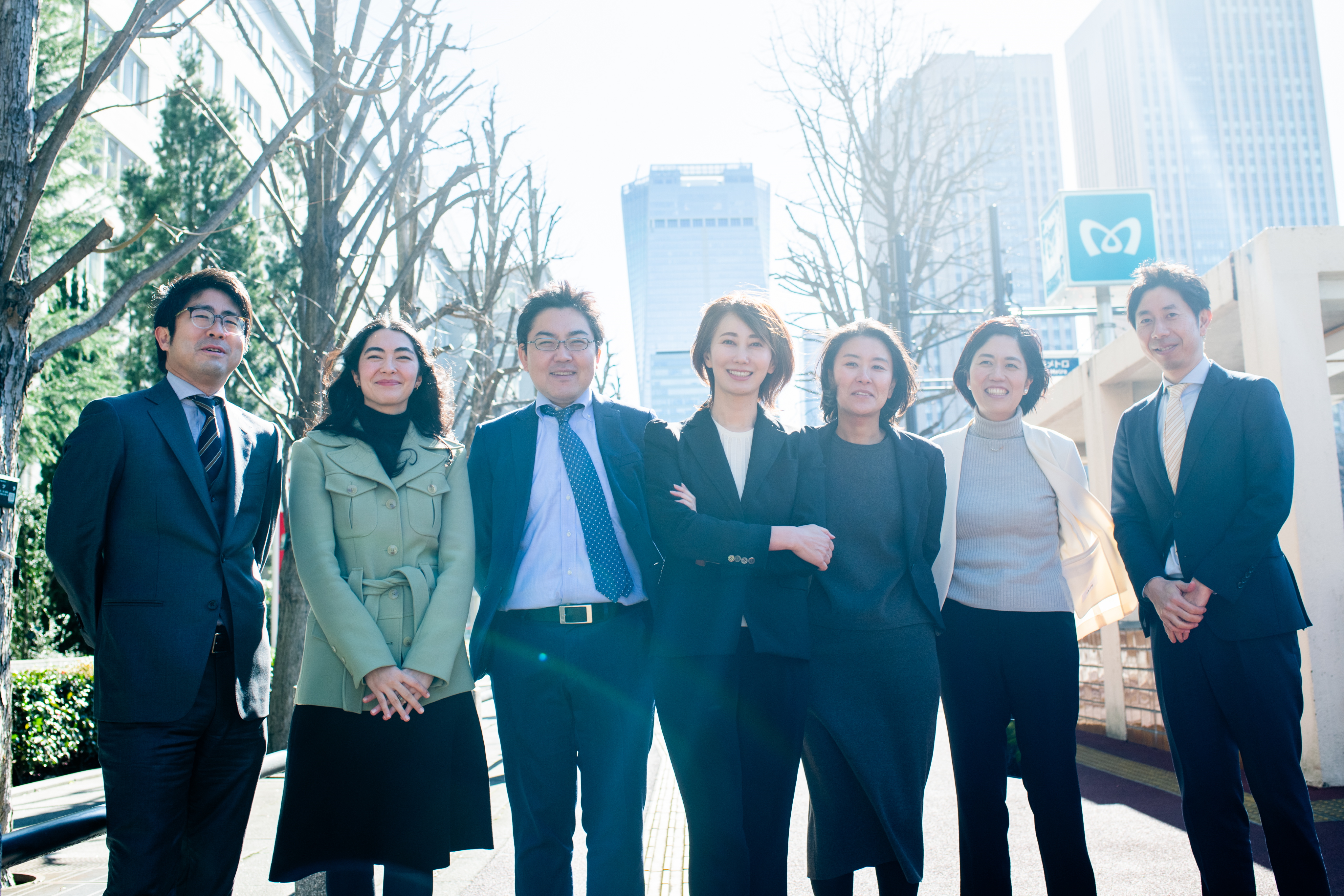
Michiko Kameishi (Law Office Eclat Umeda)
Daisuke Igeta (Miyamura and Igeta Law Offices)
Kaori Oka (Kowa Law Office)
Motoki Taniguchi (Tokyo Public Law Office)
Yoshitaka Toda (Law Office LEDGE)
Yukiko Hayasaka (Senkawa-dori Law Office)
Message from the Counsel
In a society with a declining birthrate, where having children is encouraged, it can be challenging to declare a choice to live without children. Moreover, it may be not well known that there are individuals who want to undergo sterilization surgery as a reliable and safe method of contraception, or those who feel discomfort with their inherent reproductive capacity and wish to remove them through sterilization surgery. Together with the plaintiffs, we aim to use this lawsuit to reclaim women's right to self-determination regarding reproduction, and to strive for a future where each individual can live a fulfilling life in a body that feels true to themselves.
Michiko Kameishi, Attorney
About LEDGE
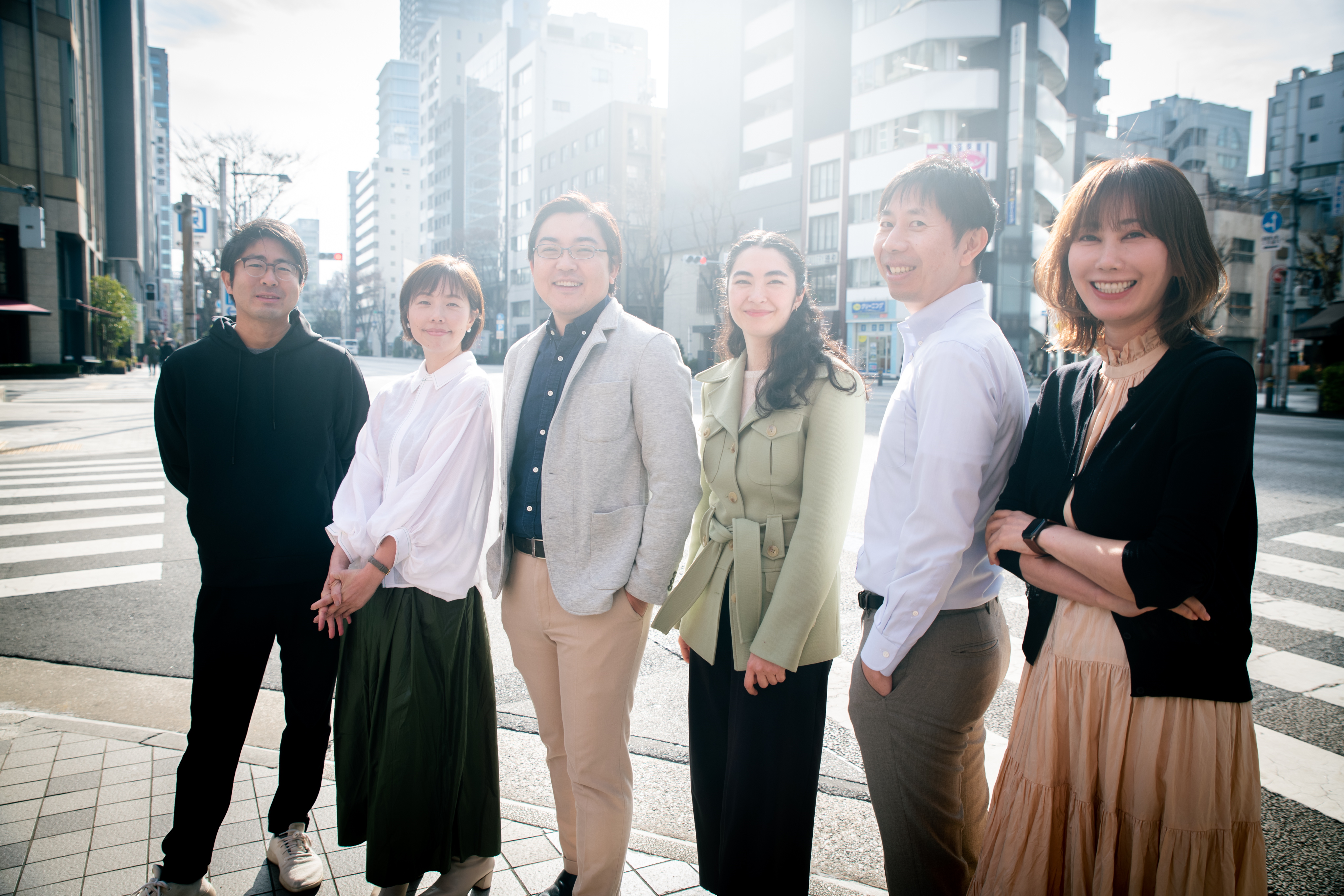
This lawsuit is supported by LEDGE. LEDGE is Japan's first citizen-donation-based public interest litigation group dedicated to human rights advocacy and social change. (Some of the lawyers in this lawsuit are members of LEDGE).
Please follow our official social media accounts for the latest updates on the "Maternity is not my body’s purpose" lawsuit.
〈連絡先〉
〒530-0013
大阪市北区茶屋町16番1号 H¹O 梅田茶屋町405
法律事務所エクラうめだ
弁護士 亀石倫子
Tel:06-6375-7003
Email:info@ledge.or.jp
“Maternity is not my body’s purpose” lawsuit legal counsel team
We are a group of lawyers that seeks the unconstitutionality and invalidity of the various provisions of the Maternal Health Act (aka the “Mother’s Body Protection Law”) that prohibit sterilization for non-medical purposes and impose strict requirements.
〈Contact information〉
〒530-0013
H¹O Umeda Chaya-machi 405, Kita-ku, Osaka
Law Office Eclat Umeda
Michiko Kameishi, Attorney
Tel:06-6375-7003
Email:info@ledge.or.jp
あなたにおすすめのケース Recommended case for you
- 外国にルーツを持つ人々 Immigrants/Refugees/Foreign residents in Japan
- ジェンダー・セクシュアリティ Gender/Sexuality
- 医療・福祉・障がい Healthcare/Welfare/Disability
- 働き方 Labor Rights
- 刑事司法 Criminal Justice
- 公正な手続 Procedural Justice
- 情報公開 Information Disclosure
- 政治参加・表現の自由 Democracy/Freedom of Expression
- 環境・災害 Environment/Natural Disasters
- 沖縄 Okinawa
- 個人情報・プライバシー Personal information/Privacy
- アーカイブ Archive
- 全てのケース ALL
